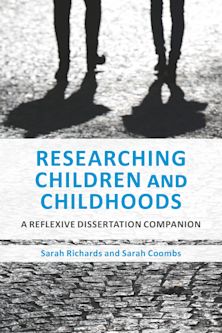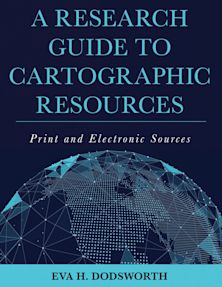- Home
- ACADEMIC
- Research Methods
- Research Skills
- Rapid Assessment Process
- Delivery and returns info
-
Free US delivery on orders $35 or over
Exam copy added to basket
Choose your preferred format. Please note ebook exam copies are fulfilled by VitalSource™.
You must sign in to add this item to your wishlist. Please sign in or create an account
Description
A newer edition of this book is available at the following address: https://www.bloomsbury.com/rapid-qualitative-inquiry-9780759123212/
RapidAssessment Process (RAP) has gone under many names but invariably uses the techniques of fieldwork and ethnography in a telescoped manner to provide solid, field-based research findings for use by policymakers and program planners. It uses an emic perspective, a team of researchers, triangulation of research findings, and iterative process to produce high-quality research in a fraction of the time taken by traditional ethnography. Long used for third world projects, RAP is now being used to inform policy in many different settings. This volume is the first introduction to this group of methods, explaining to researchers and to students how to do RAP research well. The author, an international development professional who has been doing RAP studies for over two decades, clearly outlines the process, promise and pitfalls of RAP in this brief volume. Included are many examples of successful RAP studies and clear guidance to readers on how to embark on their own RAP research.
Table of Contents
Introduction
Chapter One: To RAP or Not to RAP and the Basic Concepts
Chapter Two: Data Collection: Triangulation and Getting the Insider's Perspective
Chapter Three: Iterative Analysis and Additional Data Collection
Chapter Four: Teamwork: Polish State Farms and the Community College
Chapter Five: Trusting RAP
Chapter Six: Successful RAP
Chapter Seven: Who Benefits, Who Pays, and Who Calls the Tune
Chapter Eight: The RAP Family Tree
Appendix A. Executive Summary, Community College RAP
Appendix B. Executive Summary, Polish State Farms RAP
Appendix C. Learning to RAP
Appendix D. Glossary of Terms
References
Product details
| Published | Jul 17 2001 |
|---|---|
| Format | Paperback |
| Edition | 1st |
| Extent | 224 |
| ISBN | 9780759100121 |
| Imprint | AltaMira Press |
| Dimensions | 9 x 6 inches |
| Publisher | Bloomsbury Publishing |
About the contributors
Reviews
-
James Beebe is the master of RAP. In this book he provides the basic explanation and methodological justification for the use of RAP. He draws upon his own rich experience to illustrate its implementation and demonstrate its practical value. It is unusual for a methods book to be written so clearly and to be so accessible to the reader. I recommend it both as a teaching tool for the classroom and as a handy guide for seasoned professionals.
John L. Young
-
This admirable treatment is particularly straightforward and comprehensive. Chapter-opening summaries of main points, boxes relaying important points in single sentences, a chapter comparing RAP to similar methods, well-chosen examples, helpful figures, and a comprehensive glossary add to the book's usefulness. For both students and specialists.
M. A. Gwynne, (SUNY at Stony Brook), Choice Reviews
-
Professor James Beebe has written a highly useful, reader-friendly book on Rapid Assessment Process. The book combines concise presentations of research and analytical techniques with clear conceptual explanations about the purpose and ways of using these procedures. This enables Beebe to simultaneously emphasize speed in field work and caution against excesses, when a rapid pace may not be slow enough to capture and reveal what is essential. To my knowledge, there is no other similar manual in the literature available for those interested in employing social science inquiry methods in a time effective manner, with practical goals in mind. Social scientists doing applied research - sociologists, anthropologists, political scientists, social geographers - will find in this volume a treasure trove of methods, ideas, and advice for their work. Government agencies or private sector corporations interested in benefiting from direct social research will know better from Beebe's book what to request and what to expect from able investigators mandated to carry out rapid assessments and generate insights, knowledge, and recommendations for action. I highly recommend this book to both practitioners and teachers of social investigation methods.
Michael Cernea, (World Bank)
-
This book is an easy read and provides pragmatic suggestions for engaging in rapid assessment process research. As a university professor and researcher as well as a practitioner I find Beebe's text to be a welcome addition to the growing number of useful resources for qualitative researchers.
Charles Lee Cole, (University of Louisiana at Monroe), Forum: Qualitative Social Research
-
I found James Beebe's new book on Rapid Assessment Process to be interesting and useful. I enjoyed reading personal experiences coupled with well-stated principles. The book will be very helpful to both novice and experienced ethnographers: novices will gain a concisely presented introduction to rapid assessment work on which they can build through practice in the field. Experienced ethnographers will benefit from the remembering and reorganizing of research habits that happened to me throughout the book. I also look forward to using the book with my graduate students in community health nursing...
Noel Chrisman, (University of Washington)


































